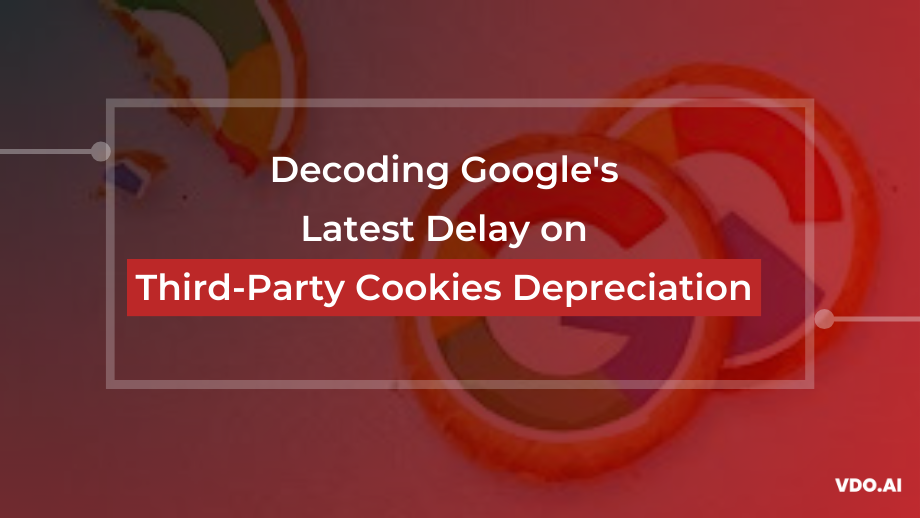Google’s steps towards phasing out third-party cookies in Chrome have taken another turn, with the deprecation now rescheduled to early 2025. This decision marks the third postponement, as the original plan aimed for a January 2020 deadline, underscoring the complexities surrounding third-party cookies and the digital environment. Initially intended to enhance privacy and shift towards less intrusive advertising mechanisms, this delay reflects the challenges in balancing ecosystem readiness with user privacy.
The repeated rescheduling is attributed to ongoing industry readiness issues and significant regulatory challenges. These adjustments signal a crucial phase for stakeholders in the advertising industry as they navigate through the uncertainties brought by these changes. The transition away from third-party cookies promises to reshape online advertising, compelling businesses to adapt to new strategies for targeting and tracking. This read provides a detailed examination of the reasons behind Google’s decision, the involvement of regulatory bodies, its impact on advertising, and the exploration of Privacy Sandbox as an alternative approach.
Background on Third-Party Cookies

Understanding Third-Party Cookies
Third-party cookies track users’ online activity, set by domains other than the one they visit. These cookies are typically set during the retrieval of external components like images or banners from servers located in other domains. This allows for the tracking of user visits across multiple websites, correlating the cookies to the content of the main web page.
Usage and Privacy Concerns
Primarily, third-party cookies are used to track a user’s browsing history and activities, presenting them with personalized ads based on their interests. For instance, if a user searches for party décor, they might subsequently encounter related advertisements across various websites. However, these cookies pose significant data security risks and are often viewed as infringing on user privacy rights, leading to widespread criticism.
Industry Response and Phasing Out
In response to these privacy concerns, major web browsers like Apple Safari and Mozilla Firefox have already implemented default blocks on third-party cookies, marking a significant shift towards enhancing user privacy and altering the landscape of online advertising. Moreover, as the industry adapts, alternatives such as browser fingerprinting, identity solutions, contextual advertising, and walled gardens are being explored to replace third-party cookies.
Reasons for the Delay of Third-Party Cookies
Intensified Scrutiny by Regulatory Bodies:
The primary catalyst for the postponement has been increased regulatory scrutiny. This is especially from the UK’s Competition and Markets Authority (CMA). The authority has expressed significant concerns, listing 39 specific issues with Google’s initial plans, which necessitated a more collaborative approach with regulators to address these concerns.
Extended Timeline for Compliance and Testing:
The CMA and the Information Commissioner’s Office (ICO) have set deadlines for market participants to submit evidence and results from industry tests. This process is aimed at ensuring that any new technologies developed to replace third-party cookies do not unfairly disadvantage competitors or harm consumers. Google has adjusted its timeline to accommodate these requirements, ensuring thorough review and compliance.
Impact on the Advertising Industry
Adjustments in Advertising Strategies
Shift Towards First-Party Data:
The deprecation of third-party cookies is prompting a significant shift towards first-party data strategies. Marketers are increasingly probing their own data sources, leading to the rise of retail media networks. These networks are now a key player in digital advertising, expected to account for one-fifth of digital ad spending globally. This will approximately amount to $140 billion.
Diversification of Ad Spend:
The advertising landscape is shifting budgets towards streaming platforms and audio ads, away from traditional display ads. Marketers should invest in streaming video and audio platforms due to their growing consumer attention, surpassing linear television.
Privacy Sandbox as an Alternative for Third-Party Cookies

Google’s Privacy Sandbox Initiative
Overview and Development
Google’s Privacy Sandbox initiative aims to replace third-party cookies with a suite of privacy-preserving APIs. Not to mention, these APIs are designed to protect users’ privacy while still allowing advertisers and developers to deliver effective digital advertising. Key components of the Privacy Sandbox include APIs for ad targeting, ad measurement, and fraud prevention, with proposals such as the Trust API, Privacy Budget API, and the Conversion Measurement API. The initiative also introduces the Federated Learning of Cohorts and PIGIN systems for audience targeting without individual tracking.
Participation and Collaboration
The Privacy Sandbox project is collaborative, with Google inviting industry participation through various platforms. Companies and developers can engage with the project by contributing feedback on GitHub, participating in W3C groups, or joining discussions about specific APIs. This inclusive approach helps refine the proposals through community feedback. It helps ensure the new standards meet broad industry needs and regulatory requirements.
Also, click here to read more about how Google’s Privacy Sandox can help you survive Cookiepocalypse
At VDO.AI, we’re committed to guiding publishers and advertisers through the challenges posed by the upcoming depreciation of third-party cookies. With the help of custom-tailored solutions and 24/7 support, we empower them to adapt and thrive in the evolving digital landscape and ensure they bank real-world results through first-party data maximization, contextual advertising, and brand-safe advertising environments.
Frequently Asked Questions (FAQs)
1. How frequently has Google postponed the elimination of third-party cookies?
Google has postponed the elimination of third-party cookie tracking three times. Furthermore, this ongoing delay is primarily due to the development of Google’s “Privacy Sandbox” initiatives. They aim to offer alternatives to cookie tracking and mitigate the impact on data-driven advertising campaigns.
2. Is Google eliminating third-party cookies from Chrome?
Indeed, Google is planning to phase out third-party cookies on Chrome, but this will not be completed until early 2025. The company has pushed back the timeline for ending third-party cookie tracking to the latter part of 2024.
3. What does the deprecation of third-party cookies entail?
The deprecation of third-party cookies signifies a major shift for the digital marketing world. It requires advertisers and publishers to seek alternative tracking solutions that respect user privacy while still delivering effective advertising.
4. What is the schedule for Chrome to phase out third-party cookies for a small percentage of its users?
Google began the process of phasing out third-party cookies for 1% of Chrome users globally in January 2024. The plan is to extend this deprecation to all Chrome users by the third quarter of 2024.







